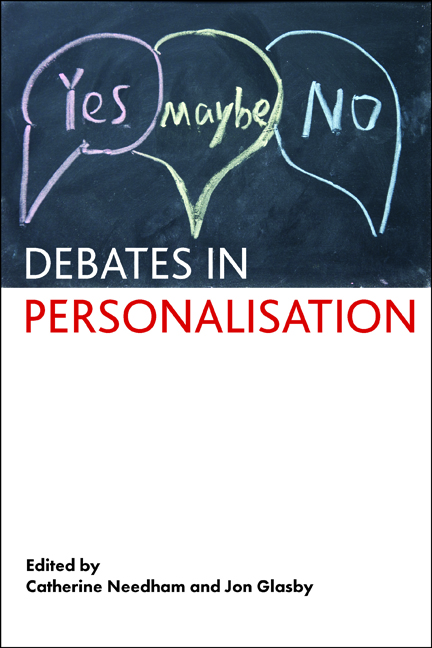Book contents
eleven - What about the workforce?
Published online by Cambridge University Press: 04 March 2022
Summary
Personalisation in social care is a policy that started life with grand ambitions to ‘transform’ care and support. But there has been relatively little detailed discussion of role of the workforce in bringing about this transformation, and how it needs to change. This lack of emphasis on workforce has meant many councils have struggled to articulate a compelling workforce strategy. Little in the way of national policy leadership around this question has filtered down to the front line.
As personalisation began to roll out in local authorities, UNISON branches reported varying degrees of engagement with local employers around implementation. Some branches were able to secure very positive involvement. For example, a UNISON branch in the Midlands reported that it had negotiated to have a ‘choice and control representative’ working closely with the council, including sitting on the workforce project board and securing a learning partnership agreement. This kind of engagement helped with communicating and engaging with staff, winning their confidence and allowing them to have a say in the changes afoot.
However, in other areas there was little attempt to involve the unions, and for many staff the strategic vision behind personalisation is still proving slippery to grasp. Meanwhile, consultation with staff has tended to focus in on restructuring and changing processes. Frontline workers feel there was little attempt to convey the policy objectives behind personalisation. And for many the first tangible manifestations of personalisation have been negative in terms of them and their jobs.
For example:
• Day centres have closed, jobs gone and the direct payments that have been put in their place are only enough to employ a personal assistant for a few hours a week (Needham, 2012).
• There is uncertainty about demand (direct payments uptake could lead to fewer users and therefore job losses).
• Councils have decided to outsource in-house services to arms-length companies or independent providers on the spurious grounds that service users cannot use their direct payment to buy council services. They have not been willing to build on the strengths of in-house services to make them more flexible and responsive for users who do not opt for direct payments.
• Personalisation has triggered further substitution of lower graded posts for professionally qualified posts (discussed in more detail later).
- Type
- Chapter
- Information
- Debates in Personalisation , pp. 103 - 110Publisher: Bristol University PressPrint publication year: 2014



